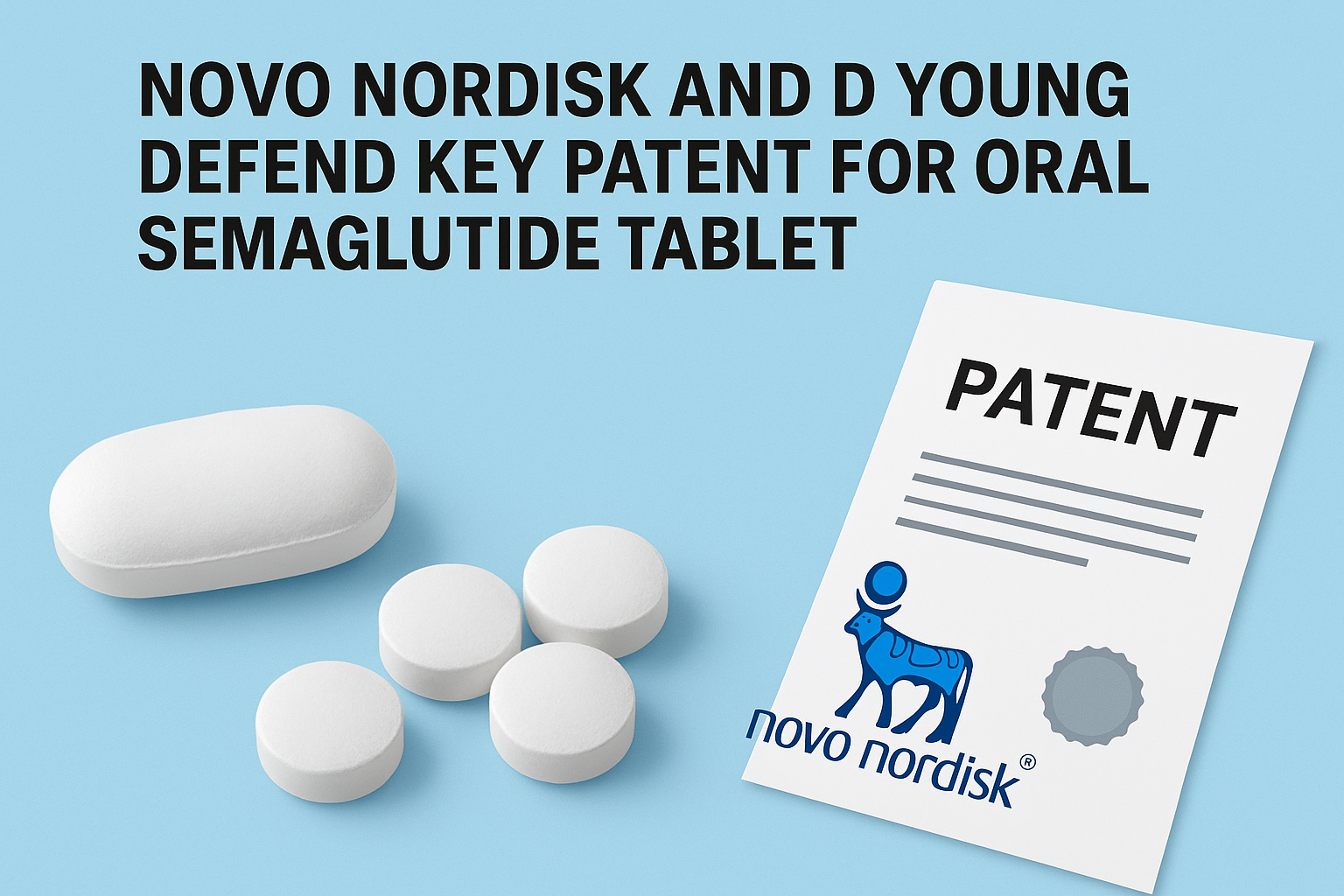Novo Nordisk and its legal team at D Young & Co are defending a crucial patent for the tablet version of semaglutide, the active ingredient used in the blockbuster diabetes and weight-loss drugs Rybelsus, Ozempic, and Wegovy. The patent dispute has gained global attention as it could determine the future of oral semaglutide’s market exclusivity.
Patent Dispute at the European Patent Office
The case centers on European Patent No. 2 827 885, which covers Novo Nordisk’s innovative oral formulation of semaglutide. The company claimed a unique two-granule system designed to improve absorption of the peptide drug in tablet form. One granule type contains semaglutide, while the other holds an absorption enhancer called SNAC (sodium N-(8-(2-hydroxybenzoyl)amino) caprylate).
This separation, according to Novo Nordisk, allows the drug to dissolve effectively and remain stable through the digestive process. However, the European Patent Office (EPO) Board of Appeal revoked the patent, ruling that it lacked an inventive step. The Board concluded that Novo Nordisk’s design was too similar to earlier known formulations and did not demonstrate a clear technical advantage across all claims.
Legal and Market Implications
The loss of this patent weakens Novo Nordisk’s intellectual property position in Europe. It may allow generic drug manufacturers to move closer to producing their own oral versions of semaglutide once other protections expire.
Despite the setback, Novo Nordisk still holds a series of related patents protecting semaglutide’s composition, dosage methods, and manufacturing processes in multiple countries. These patents could extend exclusivity into the early 2030s, particularly in the United States and select Asian markets.
A spokesperson from D Young & Co emphasized that Novo Nordisk “remains committed to defending its innovation portfolio” and continues to explore all legal and strategic options to preserve market exclusivity.
Why the Oral Formulation Matters
The tablet version of semaglutide, marketed as Rybelsus, represents a major scientific milestone. It allows patients to take the once-weekly GLP-1 therapy orally, eliminating the need for injections. This has significantly expanded the drug’s market reach and patient acceptance.
If generic competition enters earlier than expected, Novo Nordisk could face price erosion across its GLP-1 product range. Analysts note that even a modest loss in exclusivity for Rybelsus could impact billions in annual revenue, given the current surge in demand for semaglutide-based therapies worldwide.
Global Impact and Next Steps
In markets such as India and China, generic drugmakers are already preparing for opportunities in the oral semaglutide space. Industry experts expect these regions to play a key role in the next phase of the GLP-1 patent landscape.
Novo Nordisk may file divisional or secondary patents to reinforce protection of its technology. The company also retains regulatory data exclusivity in several jurisdictions, offering temporary protection even without patent coverage.
Outlook
While the EPO’s ruling marks a setback, Novo Nordisk’s dominance in the GLP-1 market remains strong. Its pipeline of next-generation weight-management and diabetes drugs continues to grow. However, the patent decision highlights a growing challenge for pharmaceutical leaders — maintaining long-term protection for complex formulations as global demand and generic pressure intensify.

